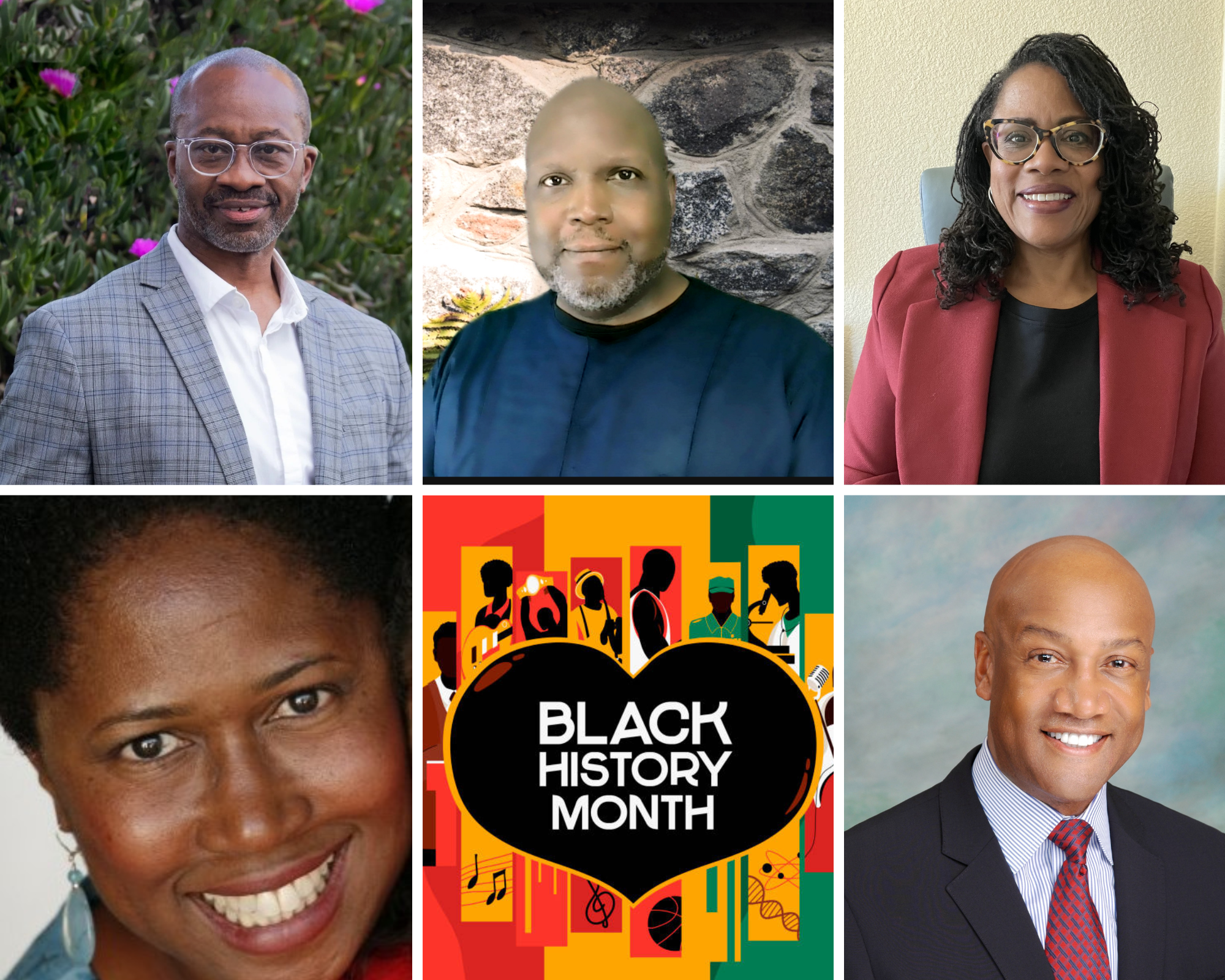
Clockwise: Ernest Black, Robert Williams, Tina Tranzor, Steven Winlock, and Cathy Creasia.
Black heritage, tradition and achievements are recognized throughout the month of February during Black History Month. It’s a time to celebrate progress, resilience, and triumphs of Black Americans despite centuries of systemic oppression.
Included in this resilience is the 1954 United States Supreme Court ruling that segregated schools were illegal. The case, Brown vs. Board of Education, marked the formal beginning of the end of segregation.
As we consider Black History Month and the 70th anniversary of the Brown vs. Board decision, we wanted to hear from education leaders in the Black community on their thoughts regarding the progress and promise of equity in the classroom.
In their own words, here is what they shared.
“Black History Month has traditionally been a time to celebrate those individuals who fought for equity, equality, and respect. Brown vs. Board of Education is one of the points of celebration. Prior to the ruling, many Black schools had dedicated teachers, but the schools had outdated books and a lack of supplies and resources. The goal of Brown vs. Board of Education was to make sure all students had adequate resources to contribute to their academic success. We see the promise of Brown vs. Board of Education in Black, language diverse, and other disenfranchised students who now have a greater access to higher quality education,” Ernest Black, systemwide director, CalStateTEACH, California State University.
“This Black History Month seems particularly relevant. With current political pressures affecting DEI programs and Education in general our fight continues. It is critical that educator preparation programs infuse as much DEI pedagogical content as possible. It is imperative that educator preparation prioritize diversity and equity curricula to ensure future educators are equipped to foster inclusive classrooms. We continue to see the damaging effects of division and inequality, underscoring the need for systemic change. While progress has been made since Brown v. Board of Education, much work remains to ensure ALL students have access to equitable opportunities in the classroom. The promise of equity is still a work in progress,” Cathy R. Creasia, director, Accreditation and Credentialing, Rossier School of Education, University of Southern California.
"As we reflect on Black History Month and the anniversary of Brown v. Board of Education, we honor the bold vision it ignited: classrooms alive with diversity, where every child thrives, regardless of race. Yet, the promise remains unfinished. While strides have been made—more inclusive policies, diverse schools, and vital civil rights protections —systemic inequities persist. Black students still face barriers that silence potential. This milestone challenges us to act with urgency, to reimagine equity not as an ideal, but as a lived reality. Together, we can transform education into the vibrant, just foundation it was always meant to be for our nation,” Tina Tranzor, director, School of Education, Sacramento County Office of Education.
“On the 70th anniversary of Brown v. Board of Education, we celebrate the growing Black middle class and the success of Black women, America’s most educated demographic. Yet, we must lament how Black boys are left behind, dehumanized by school systems failing to spark their genius. Despite Brown’s promise, resistance has persisted, shifting from de jure to de facto segregation. Today, most Black students attend under-resourced, segregated schools, and are too often funneled toward prison rather than prosperity. This must change. Teachers must: love Black children, don’t be racist, and only teach if you truly love and value Black children,” Robert A. Williams, dean, College of Education and Allied Studies, California State University, East Bay.
“The Brown vs. Board of Education 70th anniversary has seen Dr. Martin Luther’s Dream become a reality…that reality has been in the classroom…in the classroom we focus on the needs of every student and we focus on how through equity and inclusion, which are not just words but on practices, interactions, instruction, and support that is needed for all kids to reach their full whole person potential. This is done in a way that honors diversity, differences, and beauty of the multicultural backgrounds. Dr. King had that “dream”, and our classrooms are working every day to make the dream a reality,” Steven Winlock, executive director, School of Education, Sacramento County Office of Education.
To learn how the Commission prioritizes equity, inclusion, and diversity in decision-making, program design, and policy development, please view the strategic plan.
.png?sfvrsn=c28b72b1_10)
.png?sfvrsn=cd8b72b1_0)